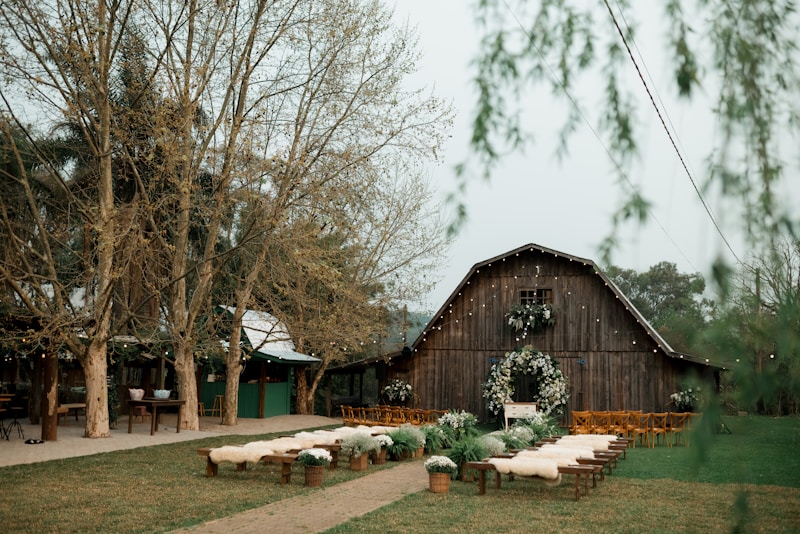Ultimate Guide to Organizing Your Dream Wedding: Tips and Tricks for a Perfect Day
Ultimate Guide to Organizing Your Dream Wedding: Tips and Tricks for a Perfect Day
Introduction
Planning the perfect wedding can be both exciting and overwhelming. A wedding day is one of the most important milestones in a person’s life, and it deserves meticulous planning. This Guide to Organizing Your Dream Wedding provides insightful tips and practical steps to ensure that your special day unfolds seamlessly. From budgeting to choosing the right vendors, we will cover everything you need to know for a memorable celebration.
Creating Your Wedding Budget
Every successful wedding begins with a well-thought-out budget. Establishing a financial plan will help prioritize your spending and make the organization process less daunting. Start by deciding on an overall budget and then allocate funds to various categories, such as:
| Category | Average Percentage |
| Venue | 30% |
| Catering | 25% |
| Photography | 10% |
| Attire | 10% |
| Decorations | 10% |
| Entertainment | 5% |
| Other Expenses | 5% |
Choosing the Perfect Venue
Your choice of venue can set the tone for your wedding. Whether you dream of a grand ballroom, a cozy garden, or a beachside ceremony, selecting the right location is paramount. When considering your venue, keep in mind:
- The location's accessibility for guests
- Weather and seasonality
- Maximum capacity
- Amenities and services provided
Don’t forget to visit potential venues in person to get a real feel for the space. 
Deciding on the Date and Time
Once you've secured your venue, it’s time to choose a date and time. Popular wedding dates tend to book quickly, so consider scheduling your wedding during the off-peak season for better availability and pricing. Pay attention to local events that might coincide with your date, as they may affect hotel availability for your guests.
Building Your Guest List
Drafting a guest list can be a sensitive task. Start by creating a preliminary list of everyone you would like to invite, then refine it according to your venue's capacity and your budget. Remember, each guest adds to your catering costs, so try to keep your list manageable.
Use digital tools or apps to help organize and track your RSVP responses, making it easier to communicate with your guests.
Finding the Right Vendors
Your wedding budget will largely depend on the vendors you choose. Here are some key vendors to consider:
- Caterer: Research caterers and schedule tastings. Check reviews and references to ensure the quality of the dishes.
- Photographer: A good photographer captures the essence of your wedding. Choose someone whose style aligns with your vision.
- Florist: Flowers can be a significant part of your decor. Work with your florist to create arrangements that reflect your wedding theme.
- DJ or Band: Music sets the atmosphere of your event, so select vendors known for their ability to get guests dancing.
Choosing Attire
Finding the perfect attire for you and your bridal party can be one of the most enjoyable aspects of wedding planning. Start early to allow time for fittings and alterations. Remember to consider the wedding theme and color palette while selecting outfits. For grooms, coordinating with the bride’s dress is crucial.
Don’t forget about accessories, as they can enhance your outfits and add personal flair.
Wedding Timeline
Creating a detailed timeline for your wedding day can help everything run smoothly. Here’s a suggested timeline to consider:
| Time | Event |
| 8:00 AM | Bridal party begins hair and makeup |
| 10:00 AM | Photographer arrives for pre-ceremony shots |
| 12:00 PM | Guests begin arriving at the venue |
| 1:00 PM | Ceremony begins |
| 2:00 PM | Cocktail hour |
| 3:00 PM | Reception dinner |
| 5:00 PM | First dance and toasts |
| 7:00 PM | Cake cutting |
| 9:00 PM | Dancing |
Incorporating Personal Touches
Adding personal touches to your wedding will make it truly memorable. Consider incorporating traditions from your culture, personalized vows, or sentimental decorations. You can also include family heirlooms or unique guest book alternatives that showcase your shared interests and memories.
Creating a Registry
Communicate with your guests about what you would like by creating a wedding registry. Choose stores that match your style and lifestyle. Include a mix of items at various price points to accommodate all guests. Sending etiquette reminders about your registry in your invitations or on your wedding website is a great way to inform guests.
Finalizing Details and Rehearsals
As the big day approaches, it’s essential to finalize all arrangements. Schedule a rehearsal dinner that includes key participants from the wedding party and family. This will help ensure everyone understands their roles and cues during the ceremony. Use this time to review the timeline with your vendors and answer any last-minute questions.
Stay organized with a checklist to make sure you don't overlook any details.
Day-of Coordination
On the day of your wedding, it’s beneficial to have a coordinator or trusted friend oversee the timeline and handle any issues that arise. This allows you to relax and enjoy the day without stress. Ensure your vendors have all necessary contact information and guidelines to follow.
Conclusion
Organizing your dream wedding is a journey filled with excitement and a few challenges. By following this guide, you can create an unforgettable experience that reflects your love story. Remember to stay organized, keep communication open with your vendors and guests, and most importantly, enjoy the process. Take breaks when needed and don’t hesitate to seek help from friends or family. Happy planning!
Keywords like wedding planning tips and wedding budget guide will assist you in your search for more information. Remember, your wedding is about celebrating love, so focus on making beautiful memories!
